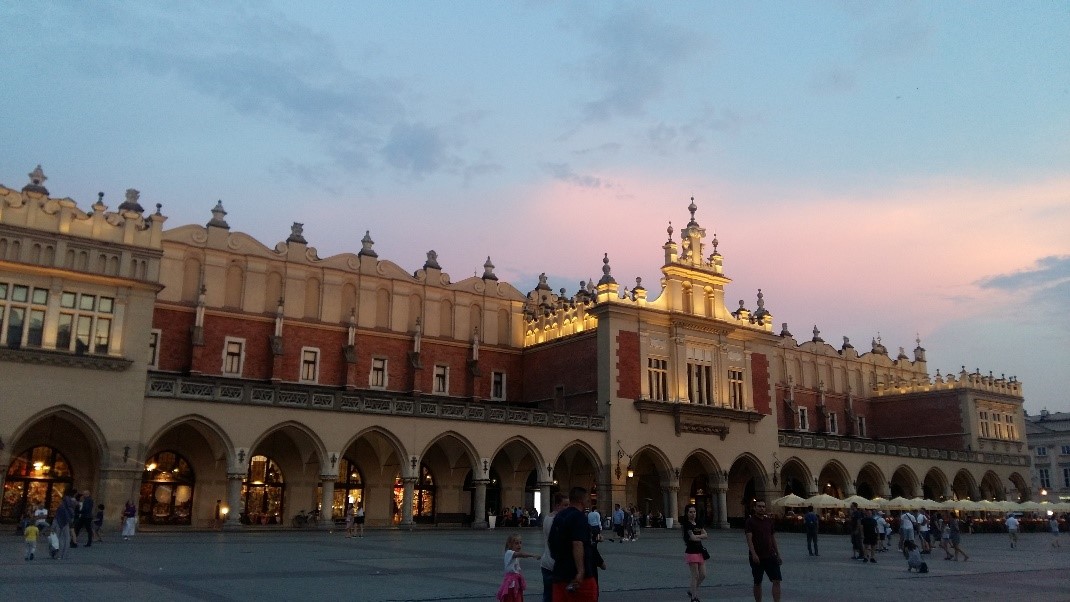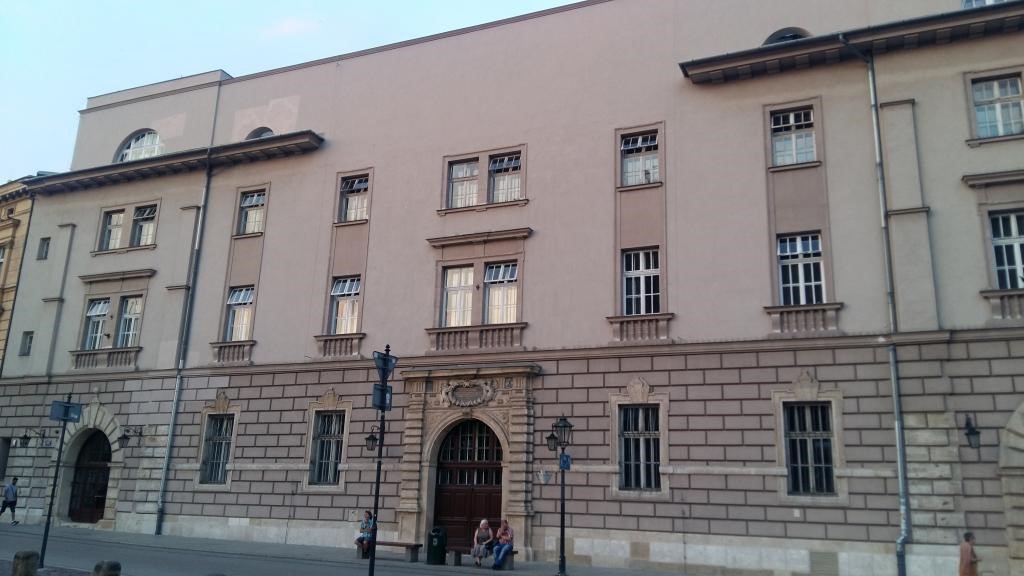|
Editor: This article is from the Faculty of European Languages and Cultures. The author, LIANG Xiaocong, is a student who majors in Polish and she began an exchange program in Poland in 2017.
At the end of September, 2017, all the way from Moscow, Russia, I finally arrived in Warsaw, the capital city of Poland. I took a slow train to Krakow, beginning my ten-month long exchange journey. It was my second time to visit Poland. Along with the old town squares I never get bored watching, and the strawberry ice-cream I was willing to buy in queues during my first visit, this time, Poland left me with cherished memories that I would never forget.
Along the riverside of the Vistula River, there stands an ancient city with a profound history and rich culture — Krakow. The natural beauty and modern layout of Krakow had already soothed my anxiety from studying abroad, let alone the medieval myths hidden behind the classical walls, pervaded with a sense of mystery. Imagining the city like a web, let me take you on a city tour.

The night scene of Krakow Square
The square was built at the Sukiennice in the 16th century. If you visited, on the first floor, you could buy various kinds of souvenirs. Walking out of the main road, you would encounter stalls selling different kinds of flowers. Just paying a little zloty, you could get a small bundle of daisies, roses or sunflowers. When you raised your head, the first thing in sight would be a Gothic building that reached into the clouds —— Santa Maria Maggiore, a building whose history and architectural characteristics were thoroughly introduced by my teacher. Around the old city, there were restaurants, clothing stores, book stores, cinemas and museums. Usually, I went to a store called Biedronka to do daily shopping, for the cheap and fresh vegetables there.

The graduation photos in Jagiellonian University
Walking along the Grodzka Street, you would see the place where I studied, the External Polish Language and Culture Centre in Jagiellonian University. Jagiellonian University, situated at the foot of the magnificent Waville Castle, is the oldest university in Poland, with a good learning atmosphere and excellent faculty. International students from Ukraine, Italy, Russia, Germany or America shared their opinions freely on issues such as the cultural differences among countries. Usually, we hung out together to have coffees, went for a walk or to the museums or the book stores. I used to send a box of Cantonese mooncakes to friends in Gdańsk, and they used the word” syty” to describe the satiation after eating the mooncakes. In Bagatela Theater, I once watched a drama called Streetcar Named Desire with my teachers and classmates. Every nuance of the actor’s facial expressions, every hysterical cry, were infused with deep emotions, which touched me deeply.

the External Polish Language and Culture Centre, Jagiellonian University
In front of my dormitory building, Żaczek, there lied the biggest city lawn in Europe, the Błonia. Covering an area of 48 hectares, the lawn was a pilgrimage site for every generation, which could be tracked back to the 12th century, and it was recorded in the World heritage list in 2000. Events like the military parades to celebrate the Napoleon's Naming Day in 1809, the King Franz Joseph I praised the Krakow Army in 1880, the 500th Anniversary of the Victory of the Battle of Glenwald in 1910, the first football match in Krakow in 1894 and the first plane Poland flew in 1910 all took place on the Błonia lawn. Now, it was a leisure resort for people in Krakow to jog, to read, to have a picnic and to bask under the sun. I once sat on the lawn with my closest friend Shannon, an exchange student from Taiwan, China. We spread the picnic cloth on the grass, eating the miscellaneous vegetable salad with bread she made for me and the Birthday lasagna I made for her. Together, we enjoyed the sunset view and embraced the beauty of nature.
Besides what I mentioned above, I was still fascinated by a lot of things in Krakow. Please forgive me for not listing them one by one. What I wanted to express was that the memory of everyday life in Krakow has deeply embedded in my heart. At the beginning, I was a very sensitive person, and I usually felt lonely because of homesickness and being alone. But the inclusiveness of the Krakow city, the care and support of foreign friends and teachers around me, gradually melted my heart. Although the study life in Krakow was full of challenges, I will try my best all the way forward to discover more opportunities and possibilities.
|

